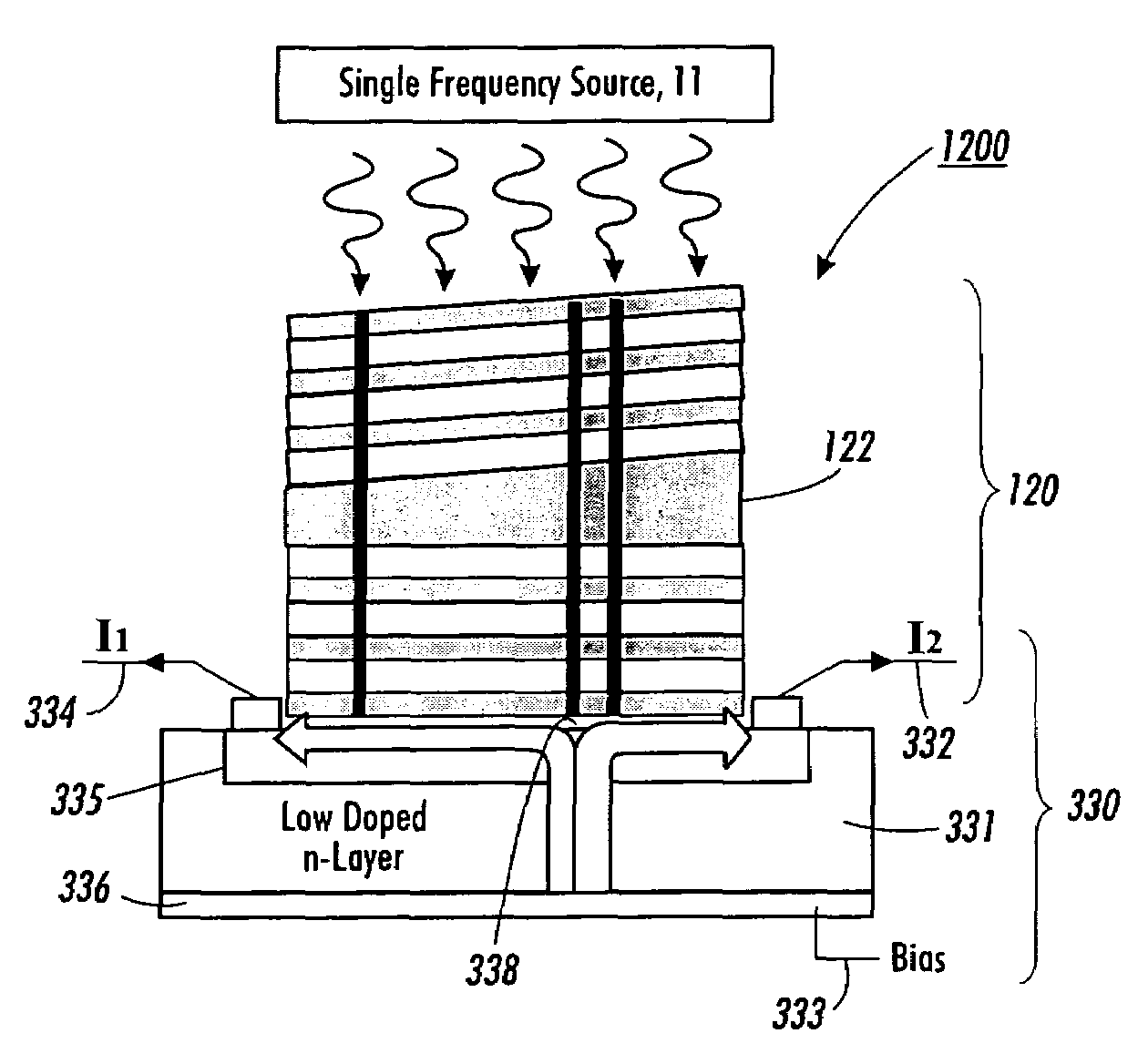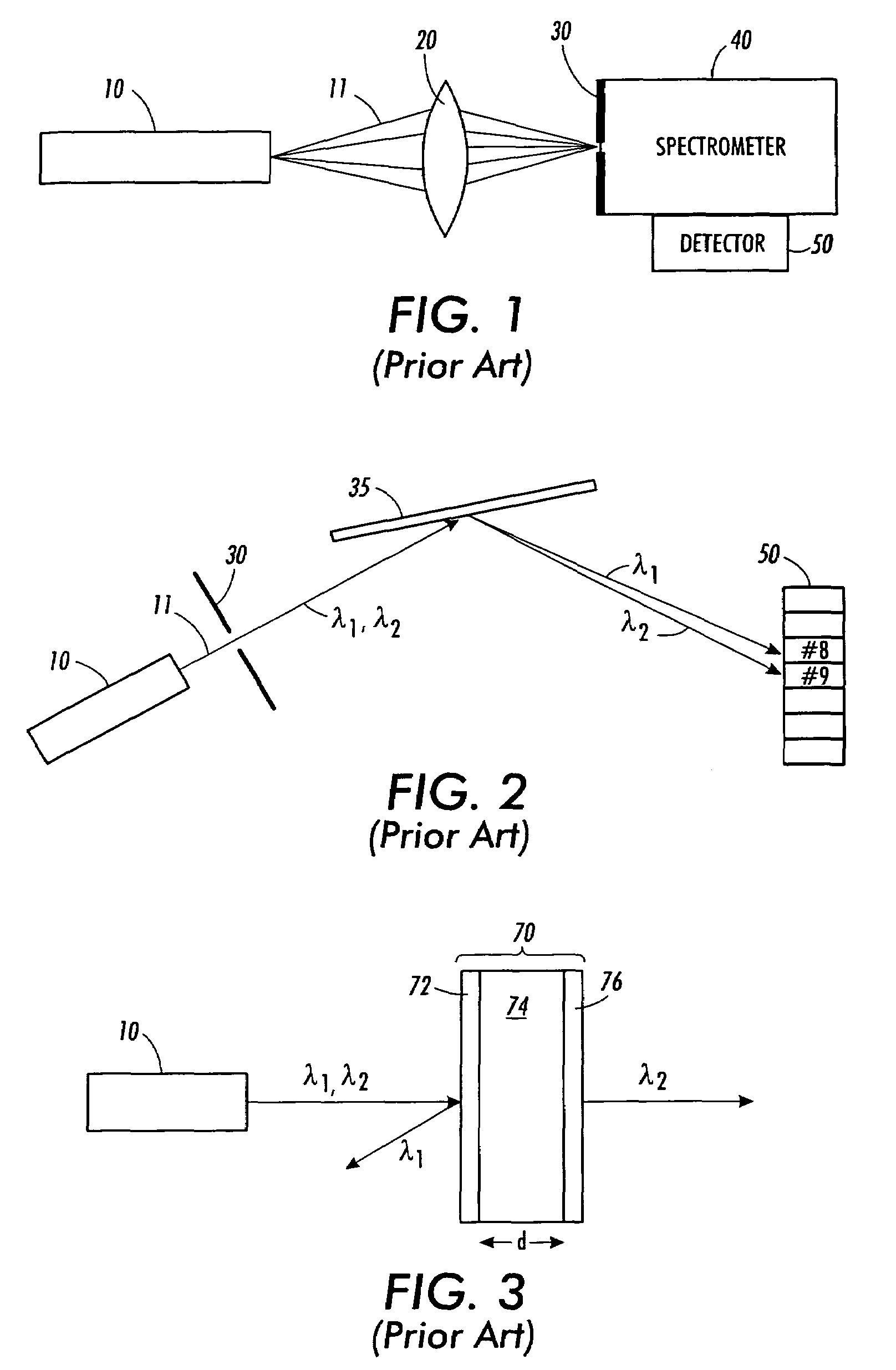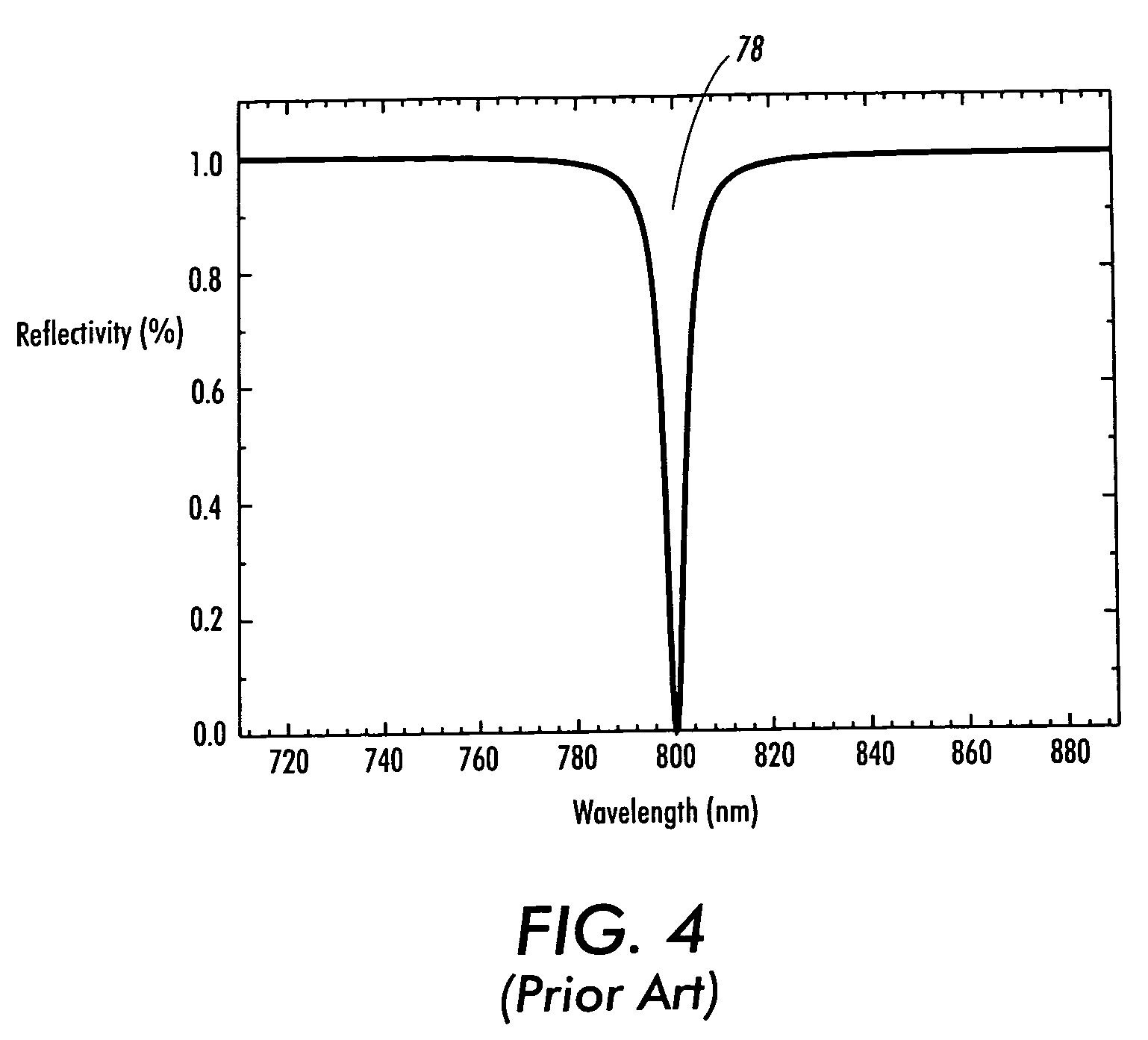Using position-sensitive detectors for wavelength determination
a position-sensitive detector and wavelength determination technology, applied in the direction of optical radiation measurement, interferometric spectrometry, instruments, etc., can solve the problems of only limited resolution of a position-sensitive detector, poor wavelength discrimination capability, and relatively expensive components, so as to improve the wavelength selectivity of the wedge-shaped etalon
- Summary
- Abstract
- Description
- Claims
- Application Information
AI Technical Summary
Benefits of technology
Problems solved by technology
Method used
Image
Examples
Embodiment Construction
[0039]FIG. 5 shows a first exemplary embodiment of the chip-size wavelength detector 1000, according to this invention. As shown in FIG. 5, the chip-size wavelength detector 1000 includes two components, a film with laterally varying transmission properties 100 and a position-sensitive detector 300. The wavelength detector 1000 may be used to determine the absolute wavelength of a monochromatic source, or it may be used to measure a wavelength shift of a source away from a nominal wavelength.
[0040]The position-sensitive detector 300 may be a device which outputs a signal (e.g., a normalized current difference) which is proportional to the location of a light spot on the surface of the detector. For example, the position-sensitive detector 300 will output a different signal level, depending on whether a light spot falls on location #8 or location #9 on the position-sensitive detector 300.
[0041]The film with laterally varying transmission properties may be variable thickness etalon 10...
PUM
 Login to View More
Login to View More Abstract
Description
Claims
Application Information
 Login to View More
Login to View More - R&D
- Intellectual Property
- Life Sciences
- Materials
- Tech Scout
- Unparalleled Data Quality
- Higher Quality Content
- 60% Fewer Hallucinations
Browse by: Latest US Patents, China's latest patents, Technical Efficacy Thesaurus, Application Domain, Technology Topic, Popular Technical Reports.
© 2025 PatSnap. All rights reserved.Legal|Privacy policy|Modern Slavery Act Transparency Statement|Sitemap|About US| Contact US: help@patsnap.com



